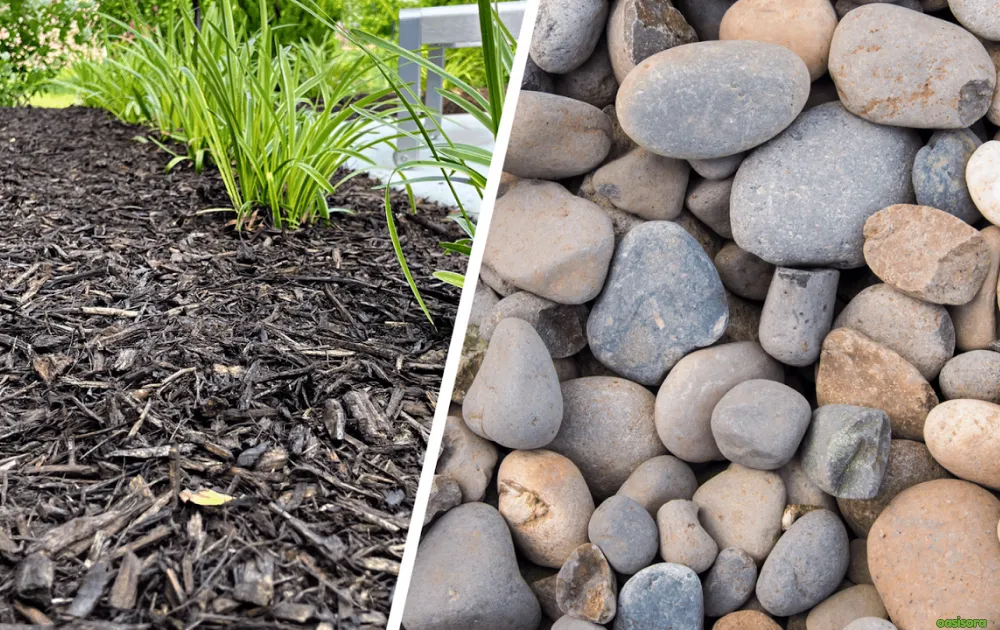
Rocks vs Mulch: What’s Best for Your Yard is a common question for many people when fixing up their gardens. It’s not only about looks; it also changes cost, plant health, and the care needed later. I have seen yards where the wrong choice made plants suffer, and others where the right option kept the garden fresh for years. In this guide, you’ll see a clear side-by-side breakdown to help you decide between the two with confidence.
Rocks vs Mulch – The Basics
When you plan your yard, one of the first choices is ground cover. Many people search or ask “Rocks vs Mulch: What’s Best for Your Yard” because both look useful similarly, but they work in very different ways.
What Is Mulch?
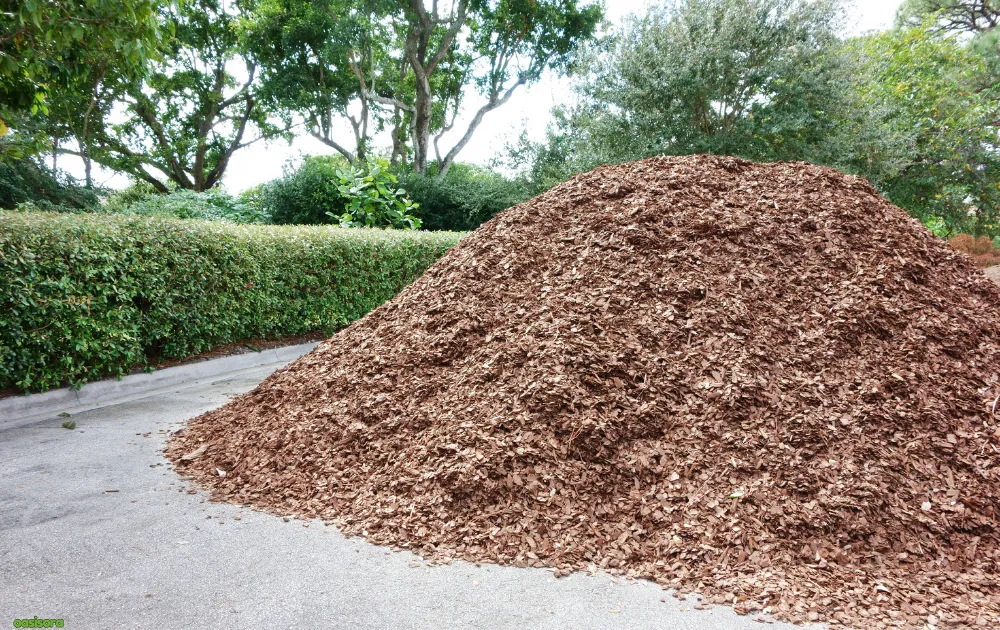
Mulch
Mulch is a cover spread on soil to keep plants safe and improve the soil. It can be made from bark, straw, compost, or wood chips. Over time, it breaks down and gives food to the soil. Rubber or cloth sheets are examples of artificial mulch that stay longer but don’t enhance soil health. Plants benefit from both forms of ground cover, mulch and rocks, because they retain moisture longer, keep the soil cool, and inhibit the growth of weeds.
What Are Rocks in Landscaping?
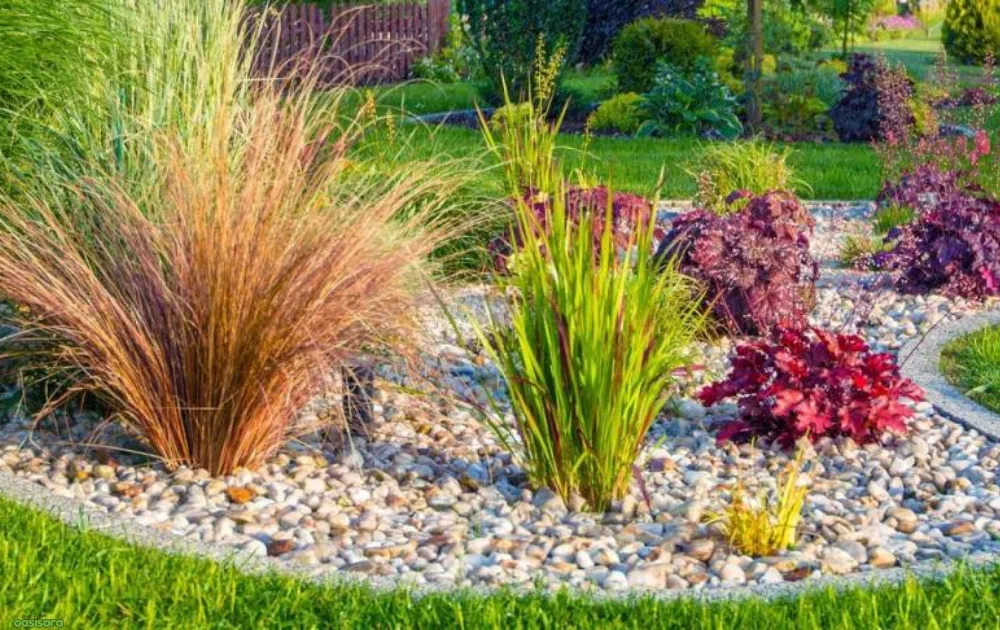
Landscape ideas with rocks
People use smooth pebbles, gravel, and other stones in yards. They stay in one place for years and don’t mix into the soil. Rocks are strong, so they work well for neat borders, paths, or dry spots. Even with wind and rain, they hardly move and need little care. In my own garden, I once used river rocks near a walkway. Also, they gave a modern, clean look to my yard without extra work.
Why Both Are Useful
Even though they function differently, both pebbles and mulch are useful in the yard. When soil health and plant growth are important, mulch is preferable. In contrast, rocks work well when you need them to last and not require much work. Even then, the final choice depends on your climate, plants, and yard design.
Pros and Cons of Mulch
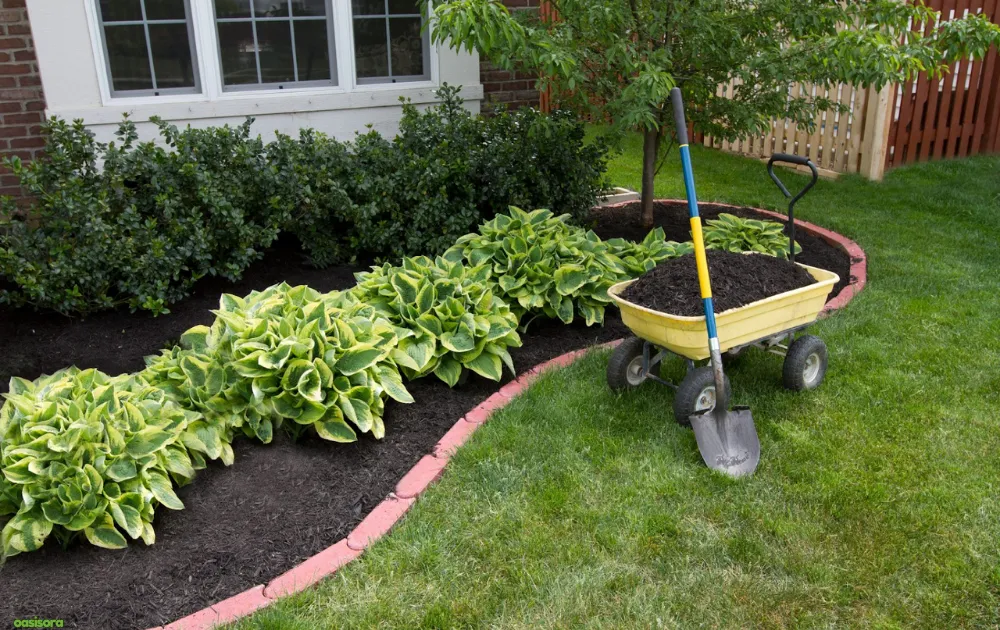
Mulch pros & cons
For many gardeners, mulch is the first option since it looks natural and promotes healthier plant growth. Still, it has good points, along with a few downsides. Let’s see both sides clearly.
1. Advantages of Mulch
- Moisture retention in hot climates: Mulch holds water in the soil and stops it from drying too fast. This keeps plants green even in excessive summer heat.
- Adds nutrients to soil: Organic mulch takes time to rot and adds food back to the soil. This gives plants a steady supply of food.
- Budget-friendly & easy to install: Mulch costs less than rocks and is light to carry. You can spread it fast without needing any tools. Once, I mulched a large bed, and I was done before the day even started.
- Improves plant growth and weed control: Mulch blocks sunlight from weed seeds, so plants get more room to replenish and grow stronger.
2. Disadvantages of Mulch
- Needs frequent replacement: Mulch breaks down every year, so you must refresh it often. I have noticed many homeowners adding a new layer each spring.
- Can attract pests: Termites and ants can hide under damp mulch.
- Fades and decomposes over time: Over time, rain and sunlight can cause mulch to lose its color. In order to keep it tidy, you must take extra care of it.
Mulch is helpful and popular, but like anything else, it has its downsides. That is why people still ask the question, “Rocks vs Mulch: What’s Best for Your Yard,” when deciding what to use.
Pros and Cons of Rocks
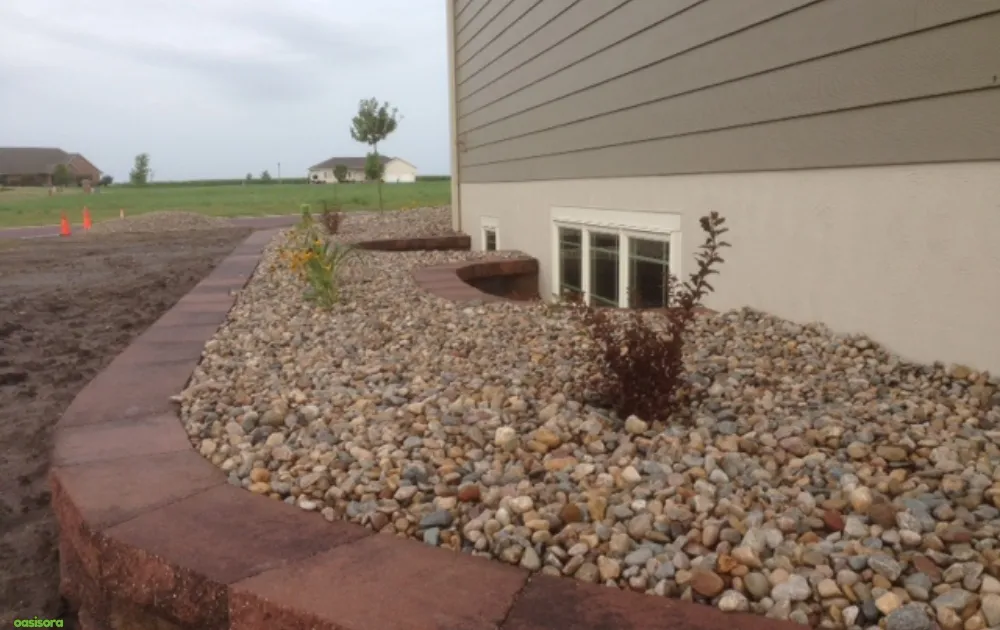
Pros and Cons of Rocks
Rocks are the second most common choice in landscaping. They give a clean, bold look and stay in place for years. They also have both good and bad sides. Let’s see them one by one.
1. Advantages of Rocks
- Long-lasting and low-maintenance: They require little maintenance and remain in place for years after you set them down. Five years earlier, I utilized river rocks along my driveway; they still have the same appearance.
- Great for hot and dry climates: Secondly, rocks handle heat well and don’t rot or wash away. They work best in places that don’t get much rain.
- Good for preventing soil erosion: Thirdly, they hold the ground in place, especially on slopes or in windy areas.
- Decorative options for modern yards: Furthermore, rocks come in many shapes, sizes, and colors. They give a modern, clean look that mulch can’t match.
2. Disadvantages of Rocks
- Higher upfront cost: Rocks cost more at the start, which can be expensive if you have a large yard.
- Can overheat the soil and stress plants: Secondly, they trap heat from the Sun. This can make the soil very hot and stress the plants.
- Difficult to remove or replace: Rocks are also quite difficult to move after placement.
- Provide no nutrients to the soil: Above all, rocks never break down, so the soil gets nothing from them. That’s why I had to put extra fertilizer in my yard whenever I used stones.
Rocks are durable and stylish, but they do not suit every garden. That is why many people compare both options and Google search “Rocks vs Mulch: What’s Best for Your Yard” before making a suitable choice.
Which Is Better for Plants and Soil?
Now, after learning each of their pros and cons, let’s compare how mulch and rocks perform individually when it comes to soil and plant care.
Mulch for Soil Health and Roots
Mulch is typically the best choice when soil health comes first, as it holds water, keeps roots cool, and adds food to the ground upon breaking down. This steady care helps plants grow stronger and keeps garden beds fresh all season.
Rocks for Dry and Low-Maintenance Yards
On the other hand, when you want to do less effort in the yard or where there is less rain, rocks work nicely. Although they do not feed the soil, they last for years and stop weeds. I once used gravel in a dry spot, and it stayed neat without much care.
Climate Makes a Difference
Thirdly, in hot states like Florida and Texas, rocks handle the strong Sun and stay in place, while mulch helps plants in humid summers. In comparison, mulch is better because it guards roots from frost and keeps the soil soft, especially in northern states. I have seen young trees in cool areas survive winter with mulch, while nearby rocky beds struggled.
Rocks vs Mulch: What’s Best for Your Yard in Soil Care?
Homeowners often ask this question when choosing ground cover. The answer to this is that, depending on the climate, the plants, and your desired amount of time, the best option will vary. Although each serves a distinct purpose, both are equally valuable.
Cost and Maintenance: Mulch vs Rocks
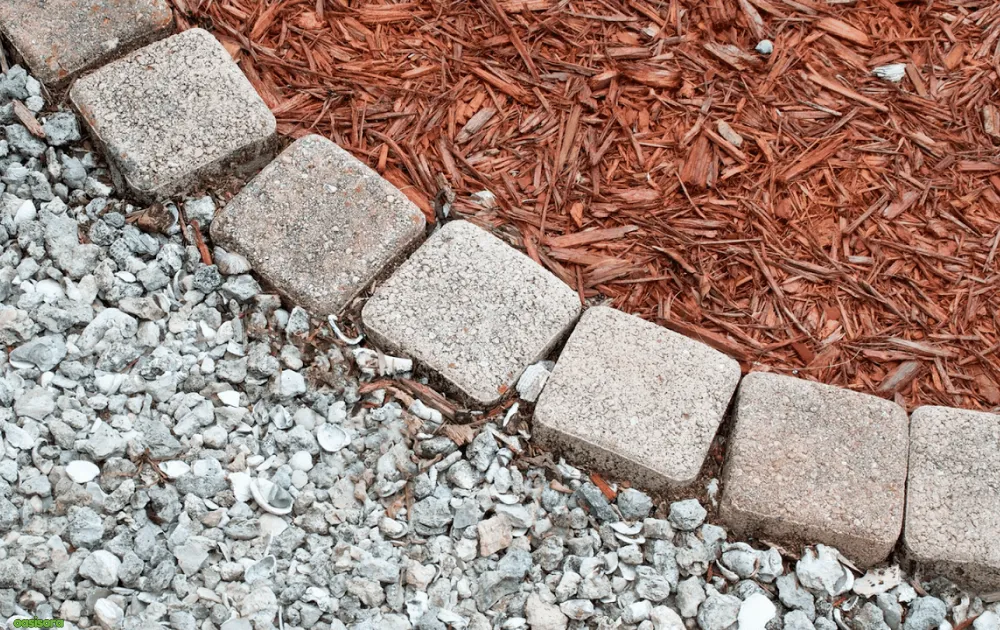
Rocks & Mulch Comparison
Now, let’s compare mulch and rocks in terms of cost and how much care they need over time in a bit more detail:
Cost of Mulch
Mulch is cheaper when you first buy it. A cubic yard usually costs less than half the price of rocks. It is also light and easy to spread. But mulch breaks down, fades, and washes away, so you have to replace it every year. I have seen many homeowners add new mulch each spring to keep their beds looking fresh.
Cost of Rocks
Rocks cost more at the start. A cubic yard of decorative stone can be two or three times higher than mulch. The weight also adds to delivery and placement costs. But rocks are long-lasting. My neighbor put gravel in his front yard a decade ago, and it still looks almost the same today.
Maintenance of Mulch vs Rocks
Mulch needs more care over time. You must top it off often because rain, Sun, and weather reduce its thickness. If it is left too long, mulch can compact and block air from reaching the soil. According to the University of Maryland Extension, organic mulch breaks down and must be refreshed to keep soil healthy.
Rocks, on the other hand, require very little work once installed. They don’t fade or break down like mulch. Most of the time, you only need to rinse them or clear away leaves and debris to keep them neat.
Let’s Compare Both Sides by Side
Here’s a quick look comparison to decide upon “Rocks vs Mulch: What’s Best for Your Yard?”
| Features | Mulch | Rock |
| Initial Cost | Low | High |
| Long-Term Cost | Higher (needs replacing) | Lower (one-time install) |
| Maintenance | Needs topping up regularly | Very little upkeep |
| Soil Health | Adds nutrients as it breaks | No nutrients, may stress roots |
| Style | Natural and warm look | Modern and bold look |
Design and Curb Appeal Considerations
When planning a yard, style matters as much as soil health. Both mulch and rocks give a different look to each yard, so let’s see how they compare from this perspective.
1. Mulch for a Natural and Warm Look
Mulch blends softly with plants and trees. It gives flower beds a clean and traditional style. The colors, like dark brown or red, make green plants stand out more.
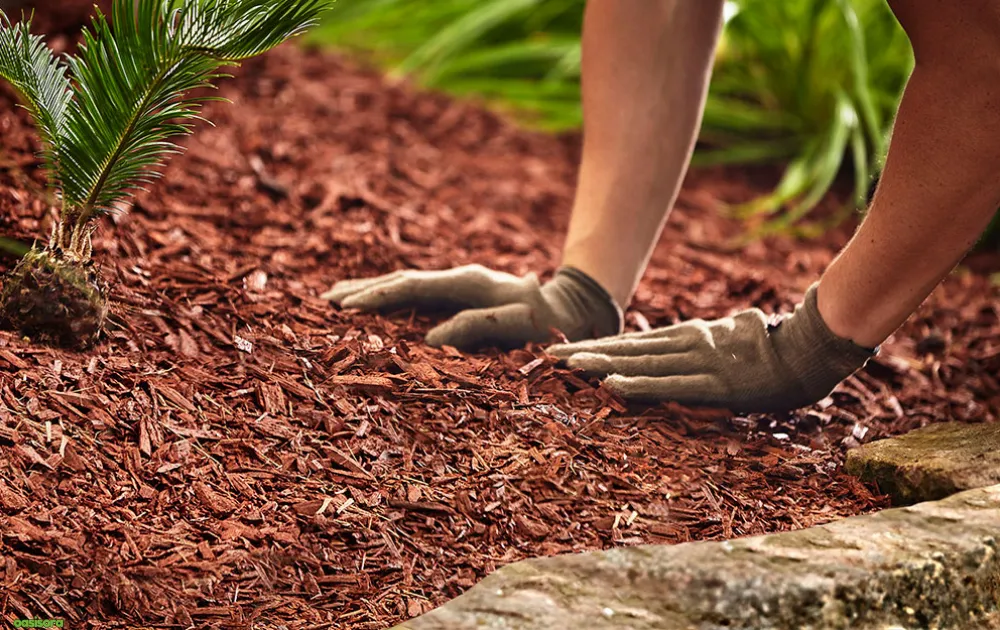
Mulch for warm and natural looks
2. Rocks for a Sleek and Modern Yard
Rocks bring a strong shape to the yard. From beautifully colored, tiny gravel to big stones, they can line paths or neatly mark borders.
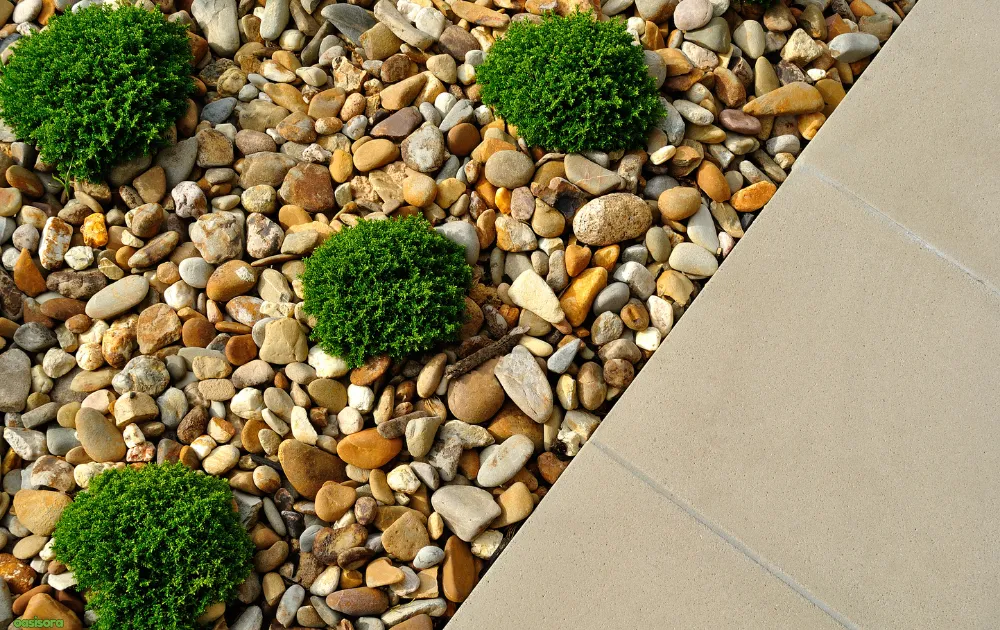
Using rocks for sleek design
3. Mixing Rocks and Mulch for Layers
You don’t have to choose only one. Many homeowners mix mulch and rocks to get the best of both. Mulch works well around plants, while rocks give strength to borders or paths. I once tried this mix in a side garden, and it balanced style with easy care perfectly.
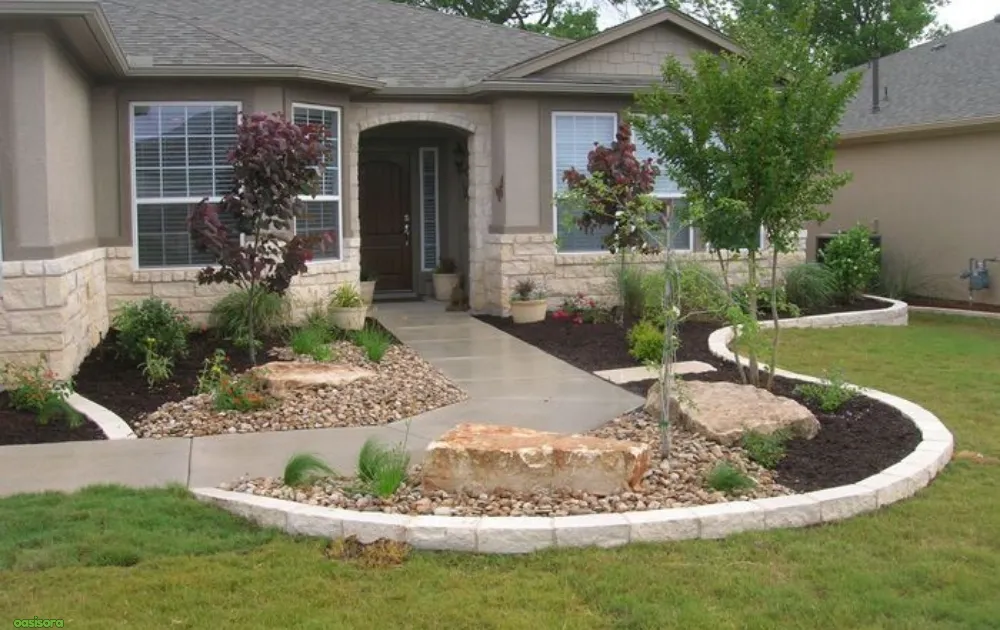
Rocks and Mulch for Layers
Utilizing both these choices together is the key answer to the question, “Rocks vs Mulch: What’s Best for Your Yard.” Nevertheless, a yard’s design is not only about cost or care—it’s about how you want your home to look.
Common Mistakes to Avoid
When using mulch or rocks, some common errors can harm plants or create extra work later. Here are the main ones to watch out for. Skipping these mistakes makes things easier and keeps your costs down. It also helps answer the question “Rocks vs Mulch: What’s Best for Your Yard” in a practical way—because the right choice is not just about looks, it’s also about using it correctly.
1. Volcano Mulching Around Trees
When mulch is piled high around tree trunks, air is blocked, and excessive moisture is retained. This may weaken the tree and cause the bark to crack.
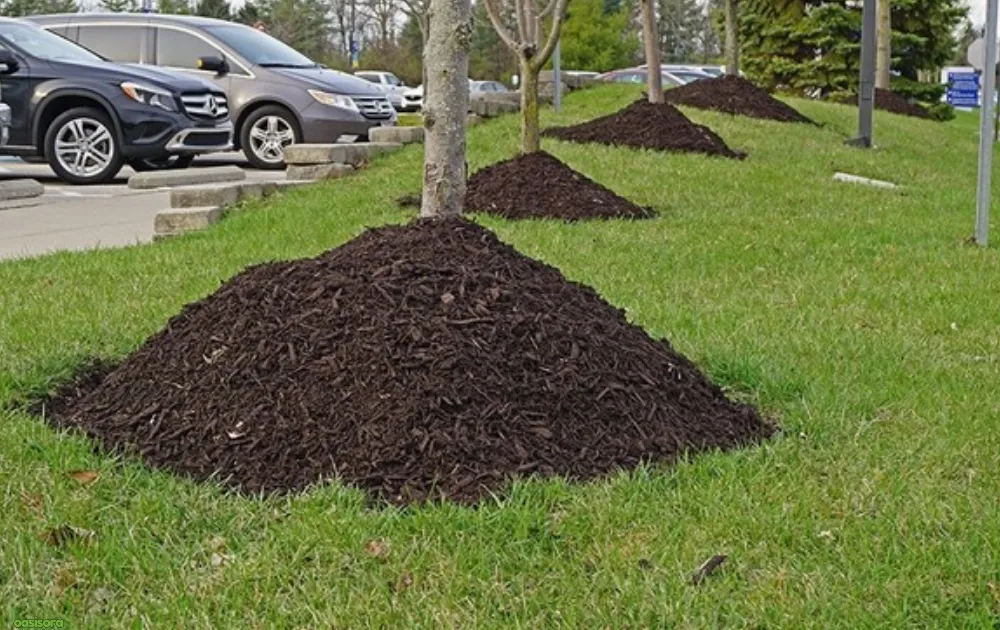
Volcano Mulching Around Trees
2. Using Rocks in Areas with Delicate Plants
Rocks hold heat, which can burn or stress soft plants. If you place them around flowers or young shrubs, the soil may become too hot. I once saw a neighbor’s roses wilt quickly because the stones around them made the soil too warm.
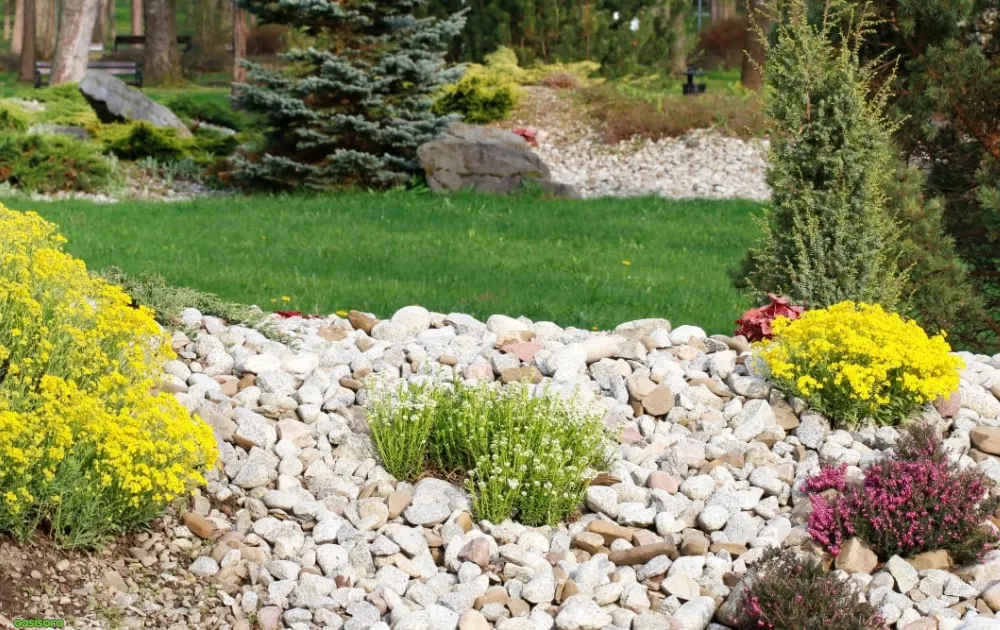
Rocks in Areas with Delicate Plants
3. Forgetting Weed Barrier Under Rocks
Without a weed barrier, soil can slip between the rocks and allow weeds to grow. Over time, this makes the area hard to clean. Experts at Kansas State University Extension note that rock mulch can create long-term weed problems if not managed correctly.
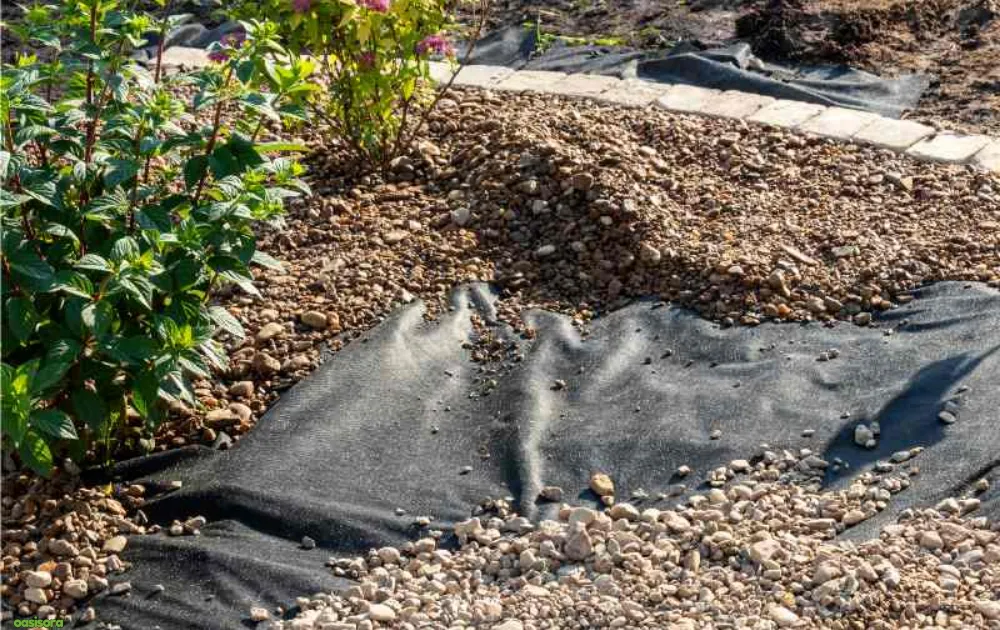
Weed Barrier Under Rocks
- Not Considering Long-Term Soil Health
Mulch breaks down and feeds the soil, but rocks do not. If you only focus on looks and forget about long-term health, your plants may need more fertilizer later.
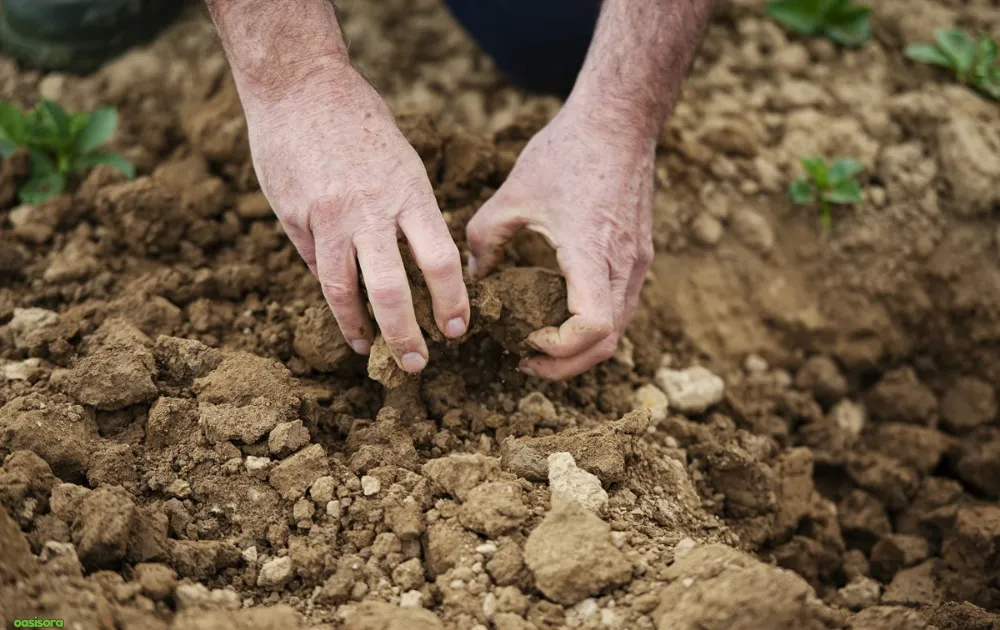
Long-Term Soil Health
Rocks vs Mulch – How to Decide for Your Yard?
Every yard is different, so the right choice depends on what matters most to you. This small guide can make your choice easier.
(i) Want Low-Maintenance? Choose Rocks
Rocks are a preferable choice if you don’t want to spend time rehydrating ground cover. They require basic cleaning, remain in place, and endure for years.
(ii) Want Healthier Soil? Choose Mulch
Mulch works well because it adds food to the soil and keeps plants strong. It breaks down and adds nutrients while holding in water. I once used mulch around young trees, and they grew stronger with less watering.
(iii) On a Budget? Go for Mulch
Mulch is cheaper to buy and easier to spread. Even if you replace it often, it’s still the first choice when money is tight. And when comparing Rocks vs Mulch: What’s Best for Your Yard, mulch usually wins in budget-friendly plans because it gives quick results without a heavy cost.
(iv) Want Modern Curb Appeal? Choose Rocks
A yard with rocks often looks sharp and tidy. You’ll see them used in modern designs, by fountains, or as borders.
(v) Think About Climate Too
Rocks do excellent in hot, arid climates since they do not decompose quickly. On the other hand, mulch is preferable in humid or wet areas because it preserves roots and promotes soil health.
Final Thoughts
Rocks or mulch? The truth is that the best choice depends on your yard goals, budget, and weather. Mulch is the smart option if you care about soil health and plant growth. Rocks are better when you want style and less work in the long run.
I have seen many homeowners mix both—mulch around plants and rocks for paths or borders. This way, you enjoy healthy soil and also offer your yard a clean, modern look.
In the end, the choice between “Rocks vs Mulch: What’s Best for Your Yard” comes down to planning. Consider your climate, the plants you grow, and your desired amount of time. The decision then becomes obvious.
FAQs
Is mulch cheaper than rocks in the long run?
Yes, mulch is cheaper to buy, but it needs replacing often. At the start, rocks need more money, but later they last longer and don’t ask for much care.
Does mulch attract bugs?
Yes, mulch can sometimes bring pests like termites or ants, especially if it stays too wet.
Will rocks stop weeds completely?
No, rocks reduce weeds, but a weed barrier is still needed to keep them away fully.
Can I mix rocks and mulch together?
Yes, many people do this. Mulch helps plants, and rocks make paths or edges look clean.
Which lasts longer in Florida’s heat?
Rocks last longer because they don’t break down in the Sun, while mulch fades faster in hot climates.

1 thought on “Rocks vs Mulch: What’s Best for Your Yard? (Pros & Cons)”
Comments are closed.